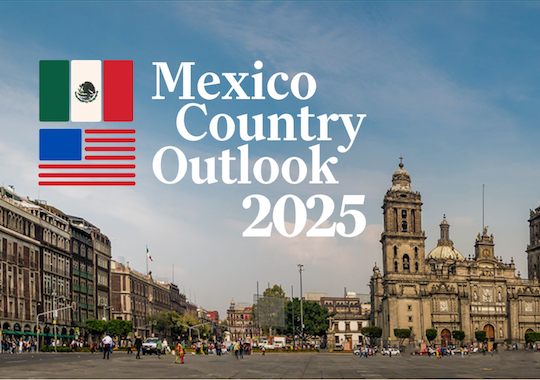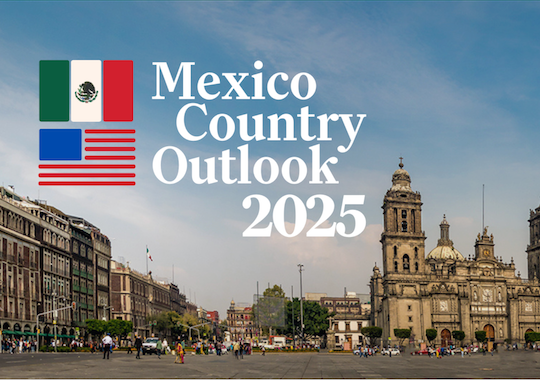Mexico is likely to face challenges politically, economically and diplomatically in 2025, according to the newest edition of the Mexico Country Outlook from Rice University’s Baker Institute for Public Policy released this week. The report provides a strategic edge to investors, businesses and policymakers as they navigate Mexico’s complex, ever-evolving political and regulatory landscape as well as its relationship with the U.S. and President-elect Donald Trump.
There are several key issues such as border security, immigration, trade, tariffs and drug trafficking that could have profound implications for the country’s stability and future direction, argues Tony Payan, director of the Baker Institute’s Center for the U.S. and Mexico.
“Political and diplomatic relations are headed for a turbulent year in 2025 as Mexico is increasingly viewed less as a strategic partner of the United States,” Payan said. “There are also emerging concerns about Chinese economic activities in the country. The acceleration of Chinese investment in Mexico — often hidden and likely a strategy by China to secure access to the American market through the USMCA (U.S.-Mexico-Canada Agreement) — is drawing more attention in Washington.

“The Trump administration is likely to bring much attention to immigration and drug trafficking. The president-elect has already threatened tariffs on Mexican goods if the Sheinbaum administration does not comply with his demand that Mexico close the border. That may become another irritant in the binational relationship in 2025.”
Payan said he expects diplomatic relations between Mexico and the U.S. to deteriorate as newly inaugurated Claudia Sheinbaum’s administration will remain committed to the policies of her predecessor, Andrés Manuel López Obrador.
“Mexico’s increasing alignment with authoritarian regimes such as Cuba, Venezuela and Nicaragua is likely to further complicate its relations with the U.S., particularly if figures like Senator Marco Rubio, a vocal critic of such alliances, take prominent roles in the U.S. government under the second Trump administration,” Payan said.
The report extensively covers the Mexican economy, health care system, education, labor markets, public safety and security, climate and water security as well as the legislative and regulatory environment expected in 2025.
“Next year, Mexico faces significant potential for a large downgrade in its credit rating. This could happen if there’s a perceived erosion of institutional independence, especially following the June 2025 elections, which could diminish the judiciary’s autonomy and eliminate independent regulatory bodies,” Payan said. “A downgrade would make Mexico less attractive to investors, increase borrowing costs and worsen debt servicing.
“The Mexican economy will also face challenges due to private and public investment’s likely decrease and the peso’s continued decline due to capital flight. The government may struggle to meet constitutional spending commitments, including subsidies to state-owned enterprises like Pemex, election costs and growing social programs, exacerbating the budget deficit.”
Each year, experts at the Center for the U.S. and Mexico generate the Mexico Country Outlook, anticipating the opportunities and challenges in Mexico’s political, regulatory, economic and social environments. It addresses themes as varied as the political and diplomatic relationship between Washington, D.C., and Mexico City, the state of politics and democracy in Mexico, shifts in the regulatory environment, pending issues in the legislative and regulatory agenda, the expected performance of the country’s economy, trends related to human mobility as well as public safety and security and the state of education, health care and other relevant social issues.
Find the previous editions of Mexico Country Outlook here and learn more about the Center for U.S. and Mexico at Rice’s Baker Institute here.

